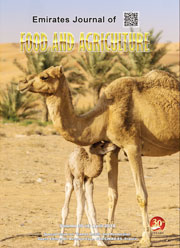Effects of climate change (precipitation variations), on rice crop yields in alluvial plains of the Tejo and Sado rivers
DOI:
https://doi.org/10.9755/ejfa.2018.v30.i6.1719Abstract
Agriculture is strongly dependent on weather conditions and climate change can alter precipitation patterns leading to extreme events as droughts and floods. Irrigated crops, such as rice, could be affected by water shortage due to prolonged drought periods or even floods. In Portugal, important paddy fields are located in Sado and Tejo river basins. Analysis of precipitation in meteorological stations from 1931/32 to 2016/17 in Sado basin and 1909/10 to 2016/17 in Tejo basin show similar variations. From record’s beginning until 1949/50 a dryer season was observed, followed by a wet season from 1950/51 until 1994/95. An instable and drier season was observed from 1995/96 onwards, with a decrease in the precipitation pattern in parallel with a great oscillation compared with the trendline. Conversely, in wet periods the precipitation pattern is more alike with smaller variations in what regards the trendline. Thus, farmers are forced to select, the more drought resistant crops in order to face the insecurity of dryer periods. No extrapolations can be derived from yield and precipitation data within a short-time period of 11 and 10 years as seen in the Sado and Tejo basins. The increase in precipitation does not always means higher yields, since other interacting factors might influence productivity.










 .
.